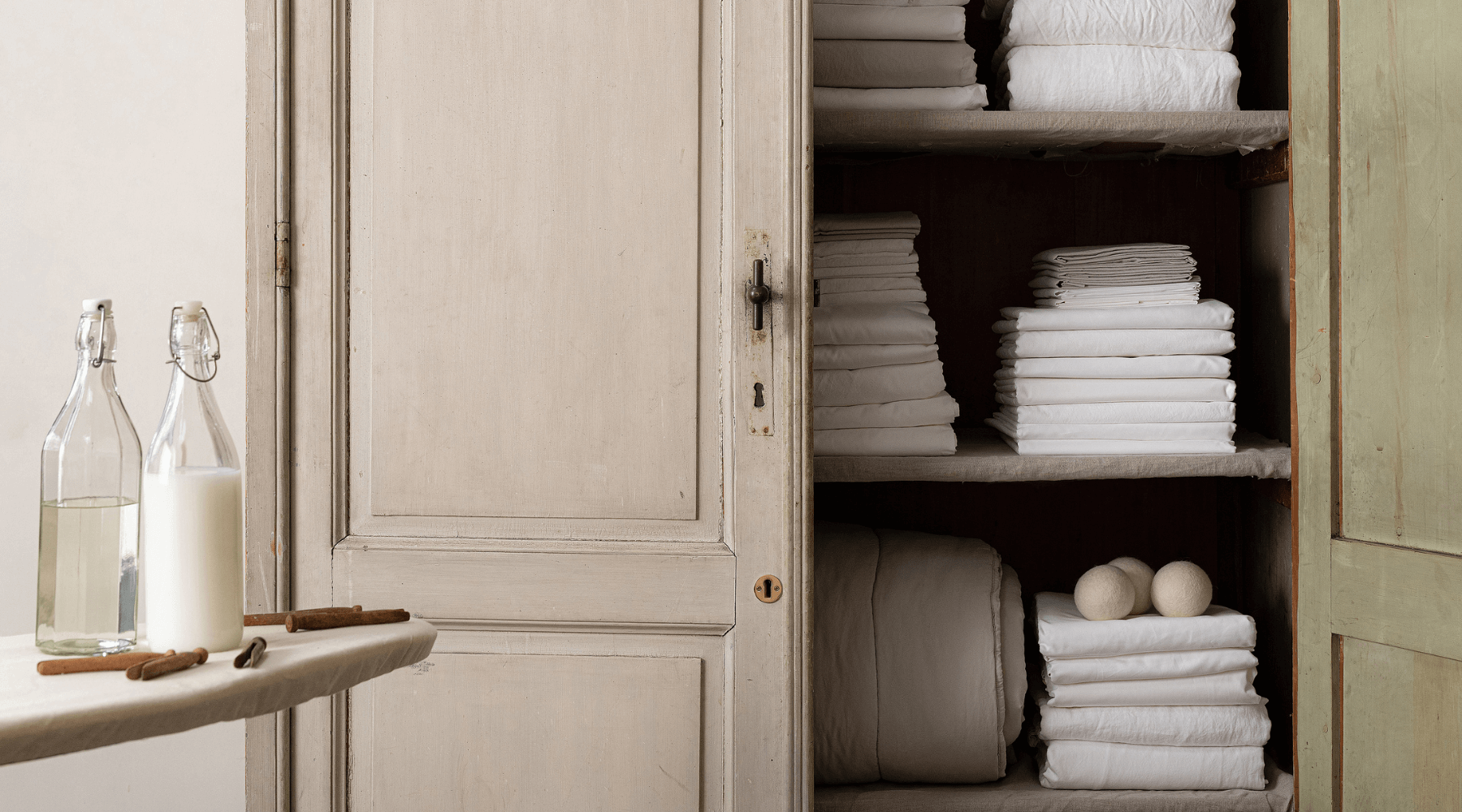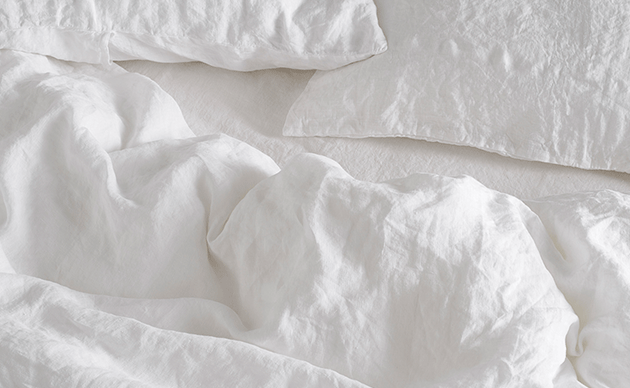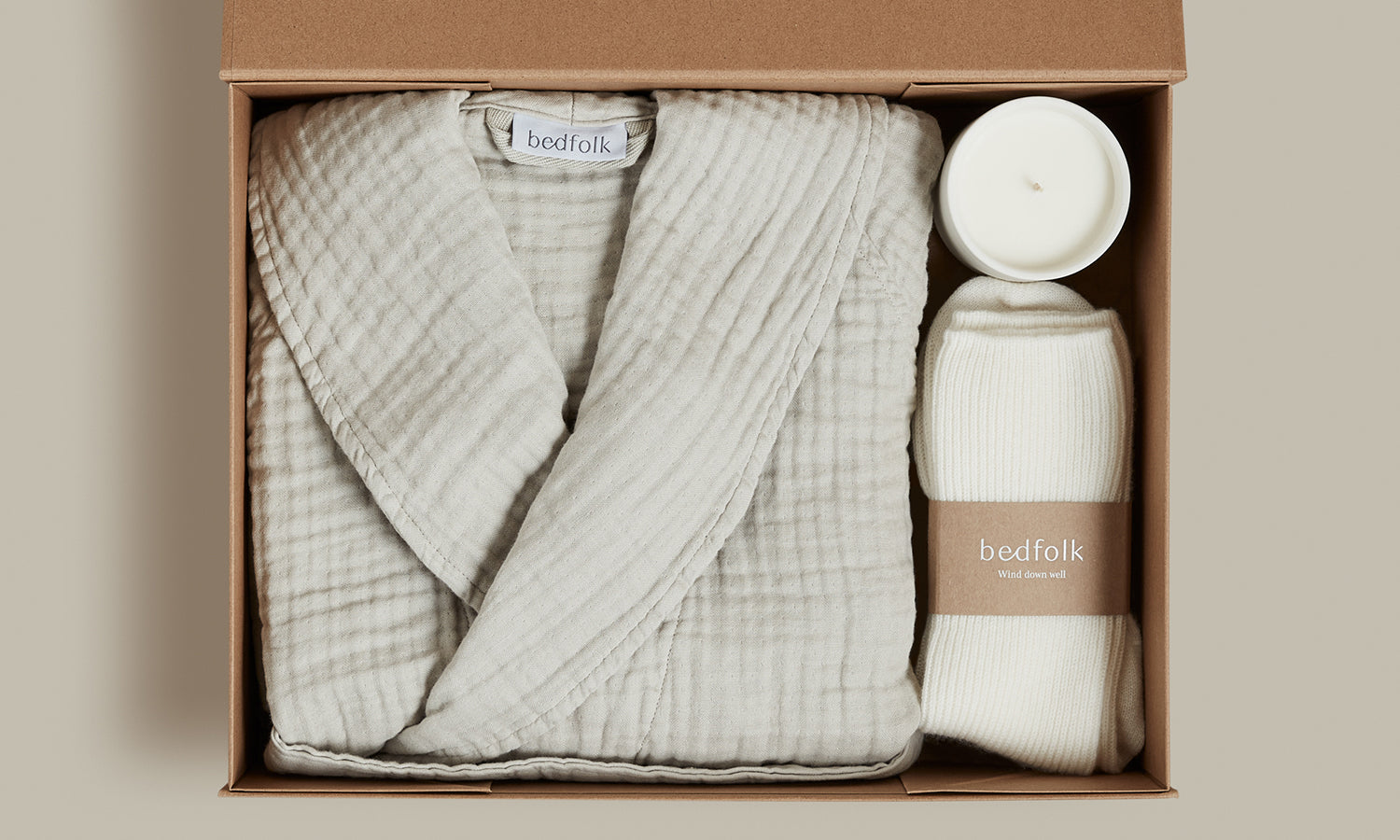
How Often Should You Change and Wash Your Bed Sheets?
How often do you change your bed? Once every week, two weeks, or more? How often is just right and when are we perhaps leaving it a little too long?
If you were to ask your friends and family how often they wash their sheets, chances are you’ll probably get a mixed bag of responses. While some people stick to a two-week rule like clockwork, some of us can be a little more variable.
So, is there a right answer and if so, how often should you change your sheets? Let’s get stuck into it.

Happiness is a super organised linen cupboard full of clean sheets
How often should you change your bed sheets?
Bed sheets should be changed once a week. Although, generally speaking, every two weeks is considered fairly standard. Now, before you panic thinking about all of that extra washing, there are a few variables that can change that time frame.
For example, in summer, you may be clammier during the night. So, changing bed sheets once a week would definitely be a good idea. We would always suggest switching the type of sheet depending on the time of year.
In summer, cooling bed sheets, such as linen, can help you get a more comfortable night’s sleep without getting too hot. Come the cooler months, you sweat less in the night so washing bed sheets every couple of weeks will do the trick.
So long as you’re not leaving it longer than two weeks at a time, you can smugly get into bed at night safe in the knowledge that you’re doing your household chores proud.
Do clean sheets help you sleep better?
Yes, sleeping in clean, fresh sheets, can help you get a better night’s rest.
If you leave long periods between changing bed sheets, you could run the risk of all kinds of health problems. We know that might sound a little dramatic but sleeping in dirty bed sheets cause some real issues.
Not to be too gross, but our bodies produce skin cells, oils and sweat all of which gets picked up by our sheets during the night. If you let this build-up, you could run the risk of triggering asthma attacks and skin irritations.
It’s true, fresh sheets will always help you sleep better. Now, go and change your bed to see how well it works.

It’s true, fresh sheets will always help you sleep better
How often should you change your pillowcase?
Pillowcases should be washed at least once a week but if possible, every three days.
Ah, the only pitfall of washing bed sheets – the pillowcase. Let’s be honest, how many of us just strip our beds and throw everything into the wash together? Well, that could be where we're going wrong.
If you think about it, the pillowcase collects the most oil and skin cells as our face is on it all night. Not to mention our hair too. That’s why it’s recommended that you change your pillowcase every three to six days. Of course, the easiest way to combat this is to have several sets of pillowcases so that you can work on a seamless rotation rather than washing and waiting for one set to dry.

How often should you wash your bedding?
Duvets should be washed at least twice a year whereas pillows should be washed every three months.
Now you’ve got your sheet washing into a regular routine, what about the rest of your bedding? That’s right, every part of your bed should be washed a few times a year. We’ve put together a table to help you keep track of how often you should wash your bedding:
| Type | Frequency |
| Duvet | Twice a year |
| Pillows | Every three months |
| Mattress protectors | Every two months |
| Mattress | Every two months |
Always make sure you have read the labels on all your bedding. Some may be fine for machine washing at home whereas others may not. For example, feather and or down duvets and pillows typically need to be taken to a dry cleaner.
It’s also important to check that your washing machine is big enough, especially if you are attempting to wash a double duvet or anything bigger. Most single duvets should be alright for your standard machine but always double-check the weight load before shoving it in. There’s nothing worse than pulling out a duvet that is only half wet because the drum was overloaded.
If you can, dry all your bedding outside so that it gets a proper breath of fresh air. Not only does this make your bedding smell amazing but it also thoroughly cleanses the material. Don’t worry if you don’t have access to an outside space, simply drying inside, or tumble-drying, will still do your bedding a world of good.
Check out our full care guide for your Bedfolk bedding
And there you have it – your comprehensive guide on how often to change sheets and bedding.












